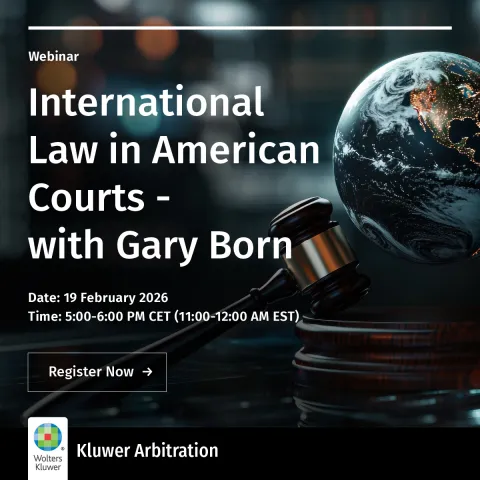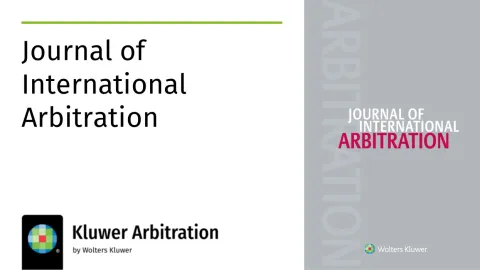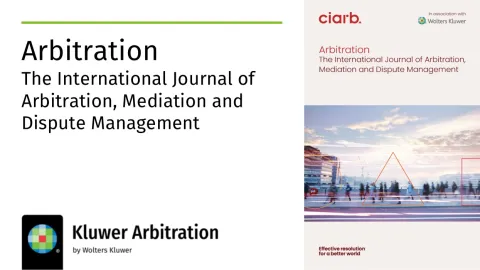Arbitrators Will Now Have Enforcement Powers in Colombia
September 29, 2025
Traditionally, arbitration commentary has held that arbitrators, unlike courts, lack imperium —meaning they do not possess enforcement powers. In other words, arbitrators have never been regarded as having the legal authority to ensure compliance with their decisions through measures such as asset seizures, injunctions, or the use of public force. Recently, however, Colombia enacted a groundbreaking law (Law 2540/2025) granting arbitrators enforcement powers. This law marks a significant paradigm shift in the understanding of arbitral authority and invites reflection on a key question: what challenges might this new power pose to the established arbitration framework?
Arbitration in Colombia
In Colombia, the Constitution authorizes the resolution of disputes through arbitration. Article 116 provides that private individuals may be temporarily entrusted with the function of administering justice as arbitrators, empowered by parties to rule in law or in equity, as determined by law.
Following the promulgation of the 1991 Constitution, the Constitutional Court held that Article 116 requires that the empowerment of private individuals as arbitrators be temporary, and that it is the parties who grant arbitrators the authority to decide the case. Moreover, Congress is responsible for defining the terms under which arbitrators administer justice. (See Constitutional Court, Judgment C-294 of July 6, 1995).
Based on these limitations, the Constitutional Court determined that the Constitution does not exclude enforcement proceedings from arbitral jurisdiction. Therefore, nothing prevented Congress from establishing rules that allow such proceedings to be resolved through arbitration. (See Constitutional Court, Judgment C-294 of July 6, 1995)
What Are Enforcement Proceedings?
According to Article 422 of the General Code of Procedure, enforcement proceedings seek the payment or satisfaction of a clear, express, and enforceable obligation. This obligation must be evidenced in a document issued by the debtor or their predecessor, constituting full proof against them, or arising from a judgment (including arbitral awards), judicial orders, or orders issued by police authorities. Such documents are known as Enforceable Titles (títulos ejecutivos).
The Modality of Arbitration for Enforcement Proceedings
On August 26, 2025, the President of Colombia’s Congress enacted Law 2540/2025, through which arbitration for enforcement proceedings was established, with the express purpose of alleviating the burden on the judicial system.
Under this new modality, (i) arbitration must be institutional, precluding ad hoc arbitration; (ii) the proceeding shall be decided by an 'Enforcement Arbitrator'; and (iii) the arbitral award must be decided based on law, not equity.
What Are the Characteristics of the Arbitration Agreement for Engaging in Enforcement Arbitration?
In the arbitration agreement, parties must agree to submit to arbitration both the enforcement of the Enforceable Title and any disputes arising from the underlying transaction. This implies waiving the right to bring enforcement or contractual claims before the courts, as such matters will instead be resolved by arbitration.
The agreement may take the form of either an arbitration clause or a submission agreement, but it cannot be included in the negotiable instrument (título valor) invoked as an Enforceable Title.
Finally, the law indicates that the arbitration agreement may be (i) closed, if it refers to a single Enforceable Title; or (ii) open, if it refers to several Enforceable Titles, whether present or future, arising from one or more specified contractual relationships.
Beyond the Signatories: Who Is Bound by the Enforcement Arbitration Agreement?
In addition to the signatories of the arbitration agreement, Law 2540/2025 expressly provides that co-debtors, joint debtors, guarantors, sureties, third-party guarantors, and issuers of letters of credit supporting the obligation are also bound by the arbitration agreement.
By entering into the underlying contractual relationship, these parties are deemed to have expressed their willingness to adhere to the arbitration agreement and will be subject to its effects in the enforcement arbitration. The only exception arises when a submission agreement is signed after the underlying legal transaction is executed: in such cases, these parties will only be bound if they also sign the submission agreement, thereby expressly manifesting their consent to the arbitration agreement.
Protection for the "Weaker" Party in the Relationship
When enforcement arbitration involves (or relates to) a consumer, the law requires that the consumer be provided with clear, truthful, sufficient, timely, verifiable, understandable, precise, and appropriate information about the effects and scope of the arbitration agreement and the enforcement arbitration. This is intended to ensure that the consumer fully understands their rights, obligations, arbitration costs, and the implications of resorting to courts. The information must be recorded either physically or electronically. As a general rule, non-compliance means the consumer is not bound by the arbitration agreement.
In contracts with consumers of financial services, concluded through adhesion contracts or general conditions that include an arbitration agreement, the consumer's right of withdrawal with respect to the arbitration agreement is deemed incorporated.
For housing mortgage loans, a special arbitration agreement is required to guarantee informed consent. Enforcement arbitration agreements may not, however, extend to loans for social interest housing (per Law 388/97, art. 91) or housing where minors reside.
Additionally, in contracts with financial entities, banks, or any entity that professionally lends money to the public, the consumer's acceptance of the arbitration agreement must be specified independently in the loan application. Moreover, agreeing to the arbitration clause cannot be a requirement for the disbursement of the loan, and its execution, acceptance, or rejection cannot result in changes to interest rates, commissions, or other financial charges.
That said, it remains unclear how, in practice, this information should be provided to consumers and whether these requirements will prove feasible to implement. In our view, the practical application of these obligations will inevitably face challenges that can only be resolved as the mechanism develops.
Is the Jurisdiction of Courts Totally Excluded?
No. In addition to cases where no enforcement arbitration agreement exists, Law 2540/2025 does not entirely exclude the jurisdiction of the courts. Enforcement arbitration will end and the file will be referred to a court for continued processing in the following situations: (i) the term for holding the installation hearing expires without it taking place; (ii) the maximum time limit for the proceedings expires without an executive arbitral award being issued or if, despite an order for enforcement, the obligation is not paid within such time limit; (iii) the tribunal declares that it lacks jurisdiction.
The Enforcement of Arbitral Awards through Enforcement Arbitration
Article 28 of Law 2540/2025 refers to the possibility of enforcing awards issued in the context of domestic arbitrations through this mechanism. To have a national arbitral award enforced before the same arbitral tribunal, the enforcement request must be made within 10 business days following the notification of the award (or the order resolving its clarification, correction, or addition, if applicable). If the request is not made within this period, the party seeking to enforce the award through this mechanism must convene a new enforcement arbitral tribunal, which will follow the procedure outlined in Law 2540/2025.
If enforcement is handled by the same arbitral tribunal, one of its members will be appointed as the Enforcement Arbitrator, under the following rules: if the tribunal was composed of three arbitrators, the president will serve as the Enforcement Arbitrator; if the president declines, one of the remaining arbitrators will be appointed in alphabetical order by surname. If the tribunal was composed of a sole arbitrator, that arbitrator would be the Enforcement Arbitrator. If none of these arbitrators accept the appointment, the arbitration center will appoint the arbitrator from the list of Enforcement Arbitrators.
However, enforcement arbitration cannot be conducted by the same arbitral tribunal that issued (i) the award in an international arbitration seated in Colombia or (ii) an award against public entities or private entities exercising administrative functions.
Conclusion
The enactment of Law 2540 of 2025 marks a critical transformation in Colombia’s domestic arbitration landscape, granting arbitrators enforcement powers that were traditionally reserved for the judiciary. While the reform aims to ease the burden on the judicial system and to provide an alternative mechanism for the satisfaction of obligations, its implementation presents considerable challenges.
The success of this new framework will depend on the ability of stakeholders to address the uncertainties as Law 2540/2025 is put into practice. Only with time and accumulated experience will it be possible to assess whether enforcement arbitration achieves its intended objectives and adequately meets the needs of the parties involved.
You may also like











